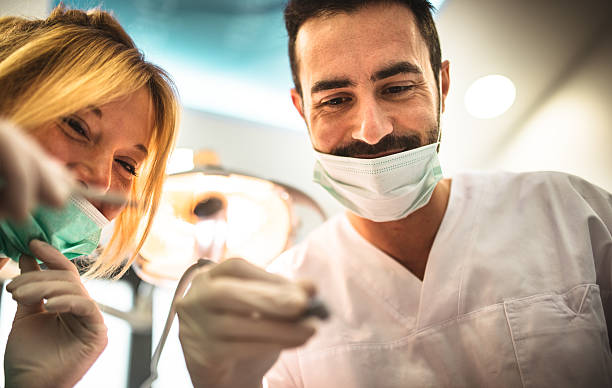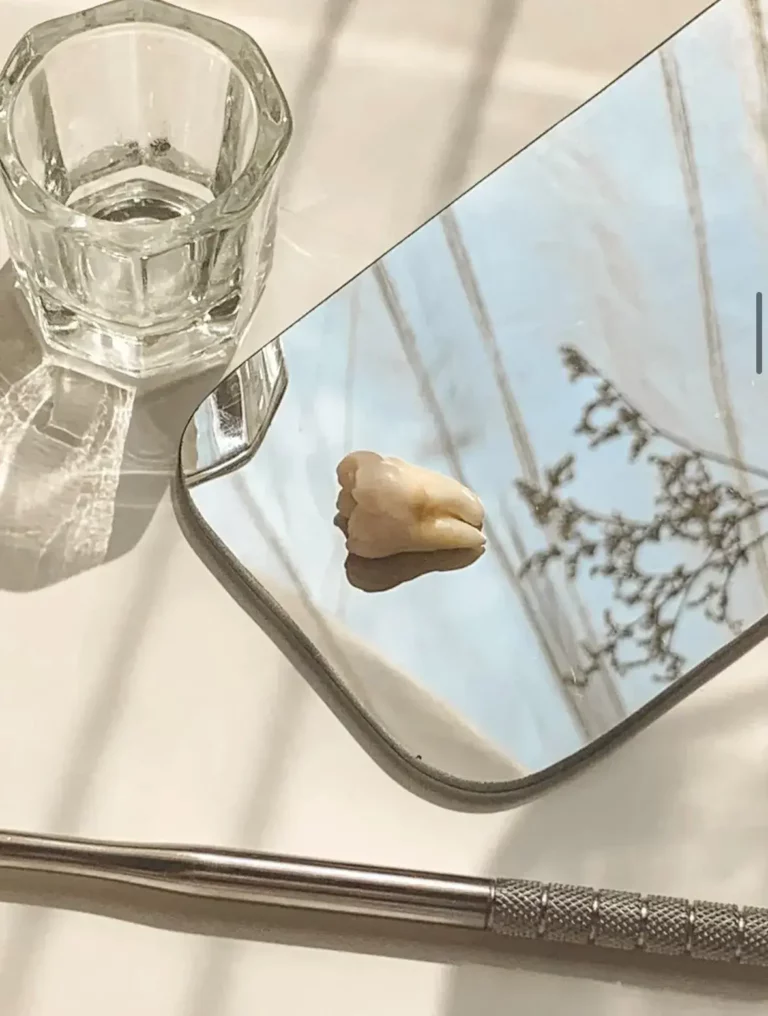
June 27, 2024

A sharp twinge of pain or a throbbing toothache can send shivers down your spine and cause worry as you wonder what to do. Pleasanton Dental Care offers this guide to help you navigate dental emergencies.
This resource equips you to recognize emergencies, explore treatment options, and prioritize oral health. Consider it your first line of defense, with Pleasanton Dental Care as your trusted partner in case of emergencies.
We'll cover the signs, types, and importance of prompt attention. Plus, you'll learn preventive measures and home care tips until you can see a dentist. To handle a dental emergency with confidence, read on.
A dental emergency refers to any situation involving the mouth, teeth, or jaw that requires immediate attention to prevent further complications or alleviate severe pain.
Unlike a minor chipped tooth, which can wait for a scheduled appointment, some dental emergencies demand prompt action to preserve oral health and overall well-being.
The signs of a dental emergency can vary depending on the specific issue. Here's a breakdown of some common indicators to watch out for:
Is the pain constant, throbbing, or sharp? Is it localized in a specific tooth or radiating to your jaw or ear? Has the pain been lingering or getting worse?
Is the bleeding excessive? Is it coming from a specific tooth, your gums, or following an injury? Understanding the cause of the bleeding can help determine the severity.
Facial swelling, especially around the mouth or jaw, can be a sign of infection or trauma. Gum swelling can also indicate gingivitis or an abscess.
A cracked or chipped tooth, depending on the severity, may cause pain and increased sensitivity.
A loose tooth can signal trauma or gum disease, while a knocked-out tooth requires immediate attention to preserve the tooth.
An abscess is a pus-filled infection at the root of a tooth or in the gum tissue. Symptoms include throbbing pain, facial swelling, fever, and difficulty breathing. Left untreated, an abscess can spread the infection and lead to serious complications.
Difficulty breathing in conjunction with a dental issue can be a sign of a severe infection or allergic reaction. Seek immediate medical attention if you experience this symptom.
Dental emergencies can be broadly categorized into three main types:
A broken denture or crown can disrupt your ability to speak and chew comfortably. While not life-threatening, it may require prompt attention to restore function.

If you're experiencing excruciating and unrelenting pain that over-the-counter medications fail to manage, seek emergency dental care.
Excessive bleeding that doesn't stop with gentle pressure application requires professional attention.
Facial swelling that compromises your ability to breathe or see is a serious concern and warrants an emergency visit.
Time is critical when dealing with a knocked-out tooth. Ideally, you should seek emergency dental care within an hour to maximize the chances of saving the tooth.
Symptoms like fever, pus discharge from the gums, or swollen lymph nodes can indicate a spreading infection. Don't delay seeking emergency dental care.
As mentioned earlier, difficulty breathing related to a dental issue can be a life-threatening emergency. Seek immediate medical attention at the nearest hospital emergency room.
Take a deep breath and try to stay calm. Assess the situation and identify the nature of the emergency.
For minor bleeding, apply gentle pressure with a piece of gauze pad to the bleeding area.
If you have a knocked-out tooth, locate the tooth carefully. Handle it by the crown (the white part) and avoid touching the root. If possible, gently place the tooth back in its socket. If that's not feasible, store the tooth in milk and proceed directly to the nearest emergency dental clinic.
While some dental emergencies require professional intervention, there are a few things you can do at home to manage discomfort and minimize further complications until you can see a dentist:
Over-the-counter pain relievers like ibuprofen or acetaminophen can help manage pain while you wait for your appointment. Always follow the recommended dosage instructions.
A warm salt water rinse (dissolve half a teaspoon of table salt in a glass of warm water) can help soothe discomfort and reduce swelling. Rinse gently several times a day.
Applying a cold compress to the outside of your face near the affected area can help reduce swelling. Wrap the compress in a thin cloth to avoid direct skin contact.
An ounce of prevention is worth a pound of cure, as the saying goes. Here are some proactive steps you can take to minimize your risk of encountering a dental emergency:
Scheduling regular dental checkups and cleanings (every six months) allows your dentist to identify and address potential problems early on before they escalate into emergencies.
Proper oral hygiene, such as brushing twice a day, flossing daily, and using mouthwash, can significantly reduce the risk of tooth decay, gum disease, and other dental issues that can lead to emergencies.
If you participate in contact sports, wearing a properly fitted mouthguard can help prevent injuries to your teeth and jaw.
Limiting sugary and acidic foods in your diet helps maintain healthy teeth and reduces the risk of cavities and tooth decay.
If possible, contacting your regular dentist is the first course of action. They may be able to accommodate you for an emergency appointment or provide guidance on the best course of treatment.
Many areas have emergency dental clinics that operate outside of regular dental office hours. These clinics can provide prompt care for urgent dental needs.
Some urgent care facilities offer limited dental services for emergencies. However, it's important to call ahead and confirm their capabilities before heading in.
In severe cases, such as difficulty breathing or uncontrolled bleeding, a hospital emergency room visit might be necessary. However, it's important to note that emergency rooms are typically equipped to handle life-threatening emergencies and may not have the specific expertise or resources to address complex dental issues.
Early intervention can help prevent further damage to the tooth, jaw, or surrounding tissues. Additionally, addressing an infection promptly can prevent it from spreading to other parts of the body.
Prompt treatment can alleviate pain and discomfort associated with the dental emergency.
The sooner you receive treatment, the better the chance of saving your tooth and preserving your overall oral health.
Facing a dental emergency can be stressful, but you don't have to go through it alone. Pleasanton Dental Care, which has served the Pleasanton area for over a decade, is here to help.
Our team of experienced dentists and caring staff prioritizes providing prompt and compassionate dental care. We utilize advanced technology and premium materials to ensure effective and comfortable treatment, all within a warm and welcoming environment.
Let us help you restore your oral health and smile with confidence.

Taking charge of your oral health through regular checkups, proper hygiene, and a healthy diet can significantly reduce your risk of encountering a dental emergency.
However, if you do find yourself in a situation requiring immediate attention, remember the importance of prompt dental care.
By acting quickly and following the tips outlined above from Pleasanton Dental Care, you can minimize damage, manage discomfort, and ensure a smoother path to recovery.
Take the first step towards a healthier, brighter smile! Schedule your personalized dental appointment now and experience top-notch care from our dedicated team. Your journey to optimal oral health begins here.
BOOK APPOINTMENT